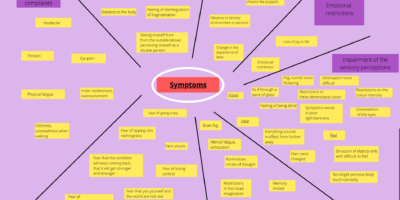Feelings of alienation and unreality are common
Feelings of alienation and the experience of unreality are very common and can almost be described as normal (–>Normality of DP/DR). About 80% of all people experience short episodes of depersonalization or derealization from time to time.
Chronic form
If feelings of unreality and alienation occur repeatedly in a disturbing way or even persist over a longer period of time, we can speak of a chronic form. According to studies (Hunter et al. 2004; Michal et al. 2005, 2015), this affects around 1-2% of the total population. That is every 100th to 50th person, so not that few people.
By comparison, anorexia also affects around one in 100 people in the general population.
Women and men equally affected
In contrast to many other mental illnesses such as anxiety disorders or depression, where women are clearly more affected, women and men suffer equally often from feelings of unreality or alienation.
In addition, chronic feelings of alienation typically begin at a very young age, usually during puberty. Depersonalization or derealization can begin insidiously, so that those affected later have difficulty naming the exact onset, or it can come on suddenly (“as if a light switch had gone out”).
3 different types of chronic depersonalization or derealization
There are 3 different ways in which chronic feelings of unreality and alienation can manifest themselves:
- The feelings of unreality and alienation occur at a certain point in time and persist without interruption over a long, to very long period of time (1/3 of those affected).
- Depersonalization or derealization begins gradually but becomes permanent over time (1/3 of those affected).
- Feelings of unreality or alienation occur permanently in phases, i.e. they appear and then disappear again for a while (1/3 of those affected).
Do not accept chronic forms!
If you are affected by one of the chronic forms of experiencing unreality or alienation listed here, you don’t have to simply accept it. Take action!
Untreated chronic depersonalization or derealization only goes away in a few cases. In the worst cases, it can last for decades and cause many problems in the lives of those affected: Social isolation, falling out of everyday working life, the ever-decreasing scope of action of those affected …
It is therefore necessary for those affected to do something about the disturbing symptoms. This can take the form of self-help, but can also take the form of psychotherapy.

Schreibe eine Antwort